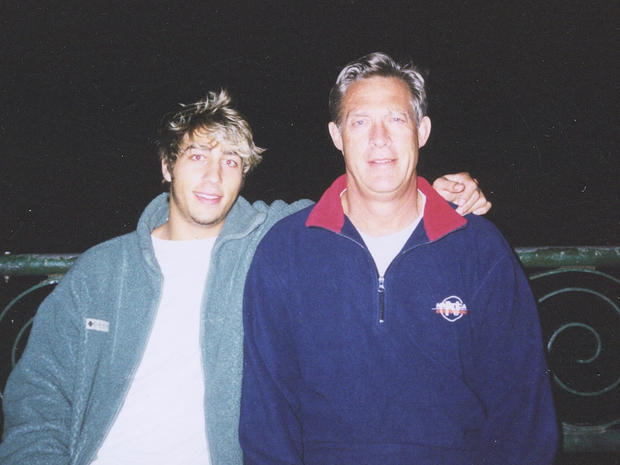Ryan Ferguson: The difficulty of winning an appeal
(CBS) - Something went terribly wrong in 2005 at Ryan Ferguson's trial in Columbia, Mo. I thought that when I covered the trial and now, there is an increasing amount of evidence to suggest that Ryan was wrongfully convicted.
Pictures: Kent Heitholt murder, crime scene and suspects
The 21-year-old man was convicted of murder and sent to prison for 40 years based mainly on the testimony of two people. None of the physical evidence in the case, and there was plenty of it, connects him to the murder. What's more, both witnesses have since recanted and in sworn statements, admitted they lied at Ryan's trial. Yet, today, Ryan, now 26 years old, remains in prison and the more time that passes, the more likely it is that he could serve his entire sentence.
Ryan Ferguson's case, the subject of this week's "48 Hours | Mystery", illustrates the difficulties that inmates encounter in trying to get appeals courts to take a look at their cases, even when there is evidence of actual innocence.
The case began in 2001,when Kent Heitholt, 48, the sports editor at the Columbia Tribune, was murdered as he left his office in the early morning hours of Nov. 1. A janitor reported seeing two young white men in the parking lot which led police to search for two young male killers. The case went nowhere until early 2004. Columbia police got wind of a young man, Chuck Erickson, who told friends that he thought he might have been involved in the Halloween night murder. Police brought him in and videotaped his interrogation. These videos may be the most important evidence in the case. They show a young man who clearly knew few, if any details, of the crime. The videos also show police questioners giving him the details he lacked.
The police still believed that two young men had been involved in the murder so they pressured Chuck to give them the name of the person he was with on Halloween, 2001. It was Ryan Ferguson. He was brought in for questioning as well. Although Ryan consistently denied any involvement, both he and Chuck Erickson were charged with Kent Heitholt's murder.
When I covered the trial in the fall of 2005, I couldn't understand why prosecutors were relying their entire case on Chuck Erickson and his memory. He clearly had credibility issues. And I didn't even know what I know today: that Chuck Erickson was a young man whose memory had been compromised by years of using drugs and alcohol.
Ryan Ferguson has already been through a number of appeals, all of which have been denied. The truth is, while it is relatively easy to convict a person at trial, it is very difficult to get an appeal, let alone win one.
At a criminal trial, a defendant has a fair chance. The burden of proof is on the prosecution which must prove its case "beyond a reasonable doubt." If acquitted, the defendant cannot be charged with the same crime again - no matter what new evidence comes up. The case is over.
But once the defendant is convicted, the burden shifts. The defendant must prove that the trial was not fair, that the judge erred or some procedural rule was violated. There are no second chances to come up with better experts or witnesses who contradict what others testified to at trial.
A person like Ryan Ferguson can try to actually prove his innocence, but in cases without DNA, it is very difficult. The system is stacked against the convicted. Those kinds of appeals have to be brought almost immediately after trial even though it often takes years, as in the case of Ryan, for new evidence to surface.
Appeals courts are reluctant to reverse cases. It adds to case load. Despite the fact that we now know - thanks to DNA - that sometimes jurors do make mistakes, jury verdicts are still sacrosanct. What's more, every time a verdict is upheld on appeal higher the courts become even more reluctant to reopen the case.
Ryan Ferguson has already lost several appeals, including one in the trial court in 2008. One of the new witnesses at this hearing was a woman who had watched the 2006 "48 Hours | Mystery" report and came forward. She said that the janitor who said he saw Ryan at the crime scene had told her that he didn't see anyone well enough to identify them. It was not enough to overturn the conviction.
Now that the two key witnesses against Ryan have said that they lied at the trial, Ryan may finally get another chance. But it is not a sure thing. No matter how good this new evidence seems, the courts may very well decide that it is not good enough to reopen the case.
For more on this case, watch 48 Hours | Mystery.
48 Hours | Mystery producer Gail Zimmerman and correspondent Erin Moriarty contributed to this report.

